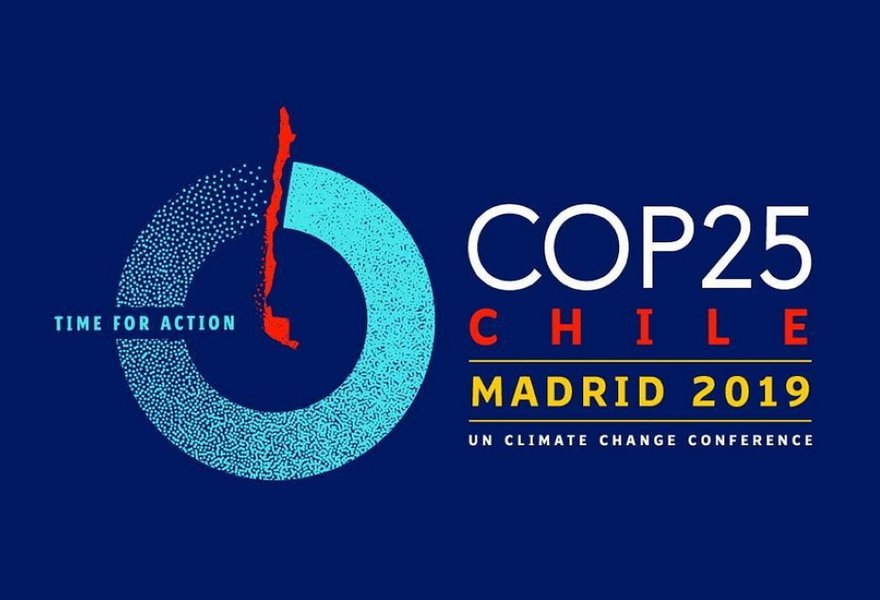“It is high time to implement the Paris Agreement”
Statement by MCC Director Ottmar Edenhofer on the UN Climate Change Conference in Madrid: align national climate protection targets with carbon price and thereby promote international cooperation.

Logo of the COP25: The UN climate conference is under Chilean presidency, but Madrid took over as conference venue at short notice. | Photo: UNFCCC
"Time for action" is the slogan of the UN Climate Conference 2019, which will take place from 2 to 13 December in the Spanish capital Madrid, the "25th Conference of the Parties" (COP 25). Ottmar Edenhofer, Director of the Berlin-based climate research institute MCC (Mercator Research Institute on Global Commons and Climate Change), comments:
"Four years after the world climate agreement in Paris, the temperature targets are still not backed up by ambitious Nationally Determined Contributions (NDCs). The fragile cooperation of the international community is threatening to collapse. That is why we must now strengthen global climate protection with three initiatives. Firstly, national work packages corresponding to the Paris Treaty must become transparent and comparable: the countries must make the price of carbon explicit, which is so far only implicit, and align their overall climate policy accordingly."
"Secondly, we must consider the important Article 6 of the Paris Agreement. The article states that even if national emission reductions must come first, reductions abroad should also count towards national reduction targets. There should be no double counting. At this point, the discussion on the rule book must finally be concluded. Article 6 must then be brought to life. This could enable a group of states to lead ambitious climate protection: they negotiate adjustments of carbon prices and domestic increases only take place if the other states within the coalition also raise their level. This kind of conditional cooperation can be successful among G20 states and may help to ensure that national efforts pay off globally."
"Third, and lastly, national efforts of developing countries should be supported by transfer payments: they reward a country for raising its carbon price and create incentives to further increase its efforts. The annual provision of 100 billion dollars in climate financing agreed upon in Paris suggests an entry point into such a system. For example, the Green Climate Fund, which has financed many individual projects to date, should primarily help with the introduction of carbon pricing".





